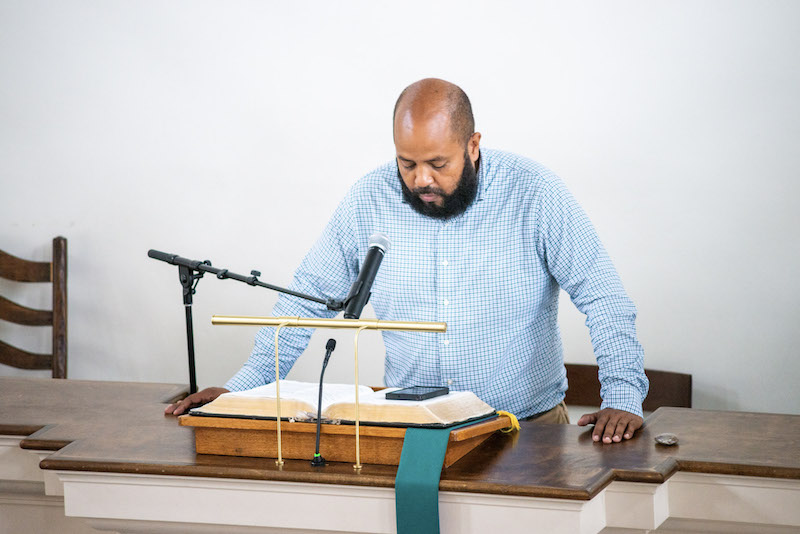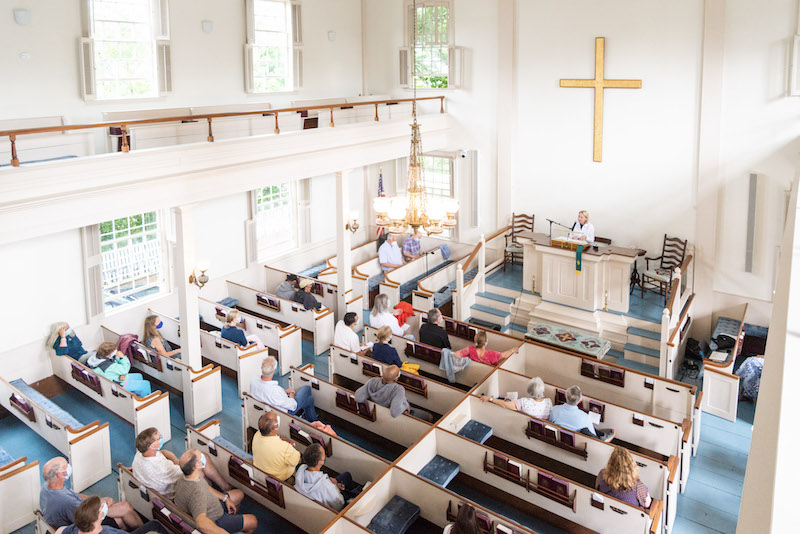Frederick Douglass died over 100 years ago, but his words were very much alive Saturday at the Federated Church in Edgartown.
A group of 12 Island residents gathered to recite What to the Slave is the Fourth of July?, a speech Mr. Douglass gave in 1852 to an anti-slavery society.
Organized by Elizabeth St. John Villard and Lisa Sherman, the event has been an annual part of the Island’s Fourth of July celebration since 2014.
“I’ve never felt it was more appropriate,” Ms. Villard said about the reading afterwards. “Slavery and the bigotry are still with us.”
The start of the gathering was marked by Follow the Drinking Gourd, a folk song which helped give directions to runaway slaves, playing over the church’s speakers.
Before the recitation, Gretchen Regan, the church’s moderator, took a moment to address the crowd.
“As we head into the Independence Day Weekend, I think we could all channel Frederick Douglass,” Ms. Regan said. “What will we do to protect the freedoms we say we value?”
Born enslaved in the early 19th century, Mr. Douglass eventually escaped bondage, taught himself to read and became a leader in the movement to abolish slavery. Mr. Douglass developed a reputation for his incisive speeches. He was also a writer and later in life a public official. The speakers are selected each year in part to represent the many hats Mr. Douglass wore, Ms. Villard said.
“We have some logic to it, but sometimes it’s just people who are committed to this,” Ms. Villard said.
Mr. Douglass came to the Vineyard in 1857. While on the Island he spoke at both the Edgartown town hall and the Federated Church, which was then known as the Congregational Church. In 2018 the church became a stop on the Martha’s Vineyard African American Heritage Trail because of Mr. Douglass’s speech.
What to the Slave is the Fourth of July? calls out the United States for espousing freedom and equality at the time while keeping millions of its people in bondage. Fourth of July, a day to celebrate those founding principles, is the day which makes that contradiction most apparent, Mr. Douglass said in his speech.
“What to the American slave is your Fourth of July? I answer, a day that reveals to him, more than all other days in the year, the gross injustice and cruelty to which he is the constant victim,” read Joe Carter, a former Oak Bluffs chief of police.
Mr. Douglass takes aim in his speech at the institutions — namely the church, legislature and court system — which upheld slavery. Nis Kildegaard, a retired reference librarian at the Edgartown library, cited a passage about the church’s complicity.
“Many of its eloquent divines, who stand as the very lights of the church, have shamelessly given the sanction of religion and the Bible to the whole slave system,” Mr. Kildegaard read.
Ms. Villard read the end of the speech, which is about hope for the future. “Notwithstanding the dark picture I have this day presented of the state of the nation, I do not despair of this country. I therefore leave off where I began — with hope.”










Comments (2)
Comments
Comment policy »